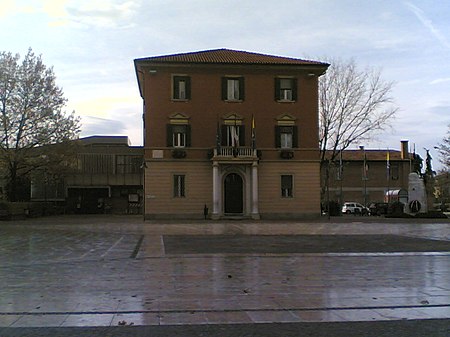Calderara di Reno
Cities and towns in Emilia-RomagnaEmilia-Romagna geography stubsMunicipalities of the Metropolitan City of Bologna

Calderara di Reno (Bolognese: Caldarèra) is a comune (municipality) in the Metropolitan City of Bologna in the Italian region Emilia-Romagna, located about 10 kilometres (6 mi) northwest of Bologna. The frazione of Sacerno is usually considered the place where, in 43 BC, Octavian, Mark Antony and Lepidus met to set the Second Triumvirate.
Excerpt from the Wikipedia article Calderara di Reno (License: CC BY-SA 3.0, Authors, Images).Calderara di Reno
Viale dei Ciliegi,
Geographical coordinates (GPS) Address Nearby Places Show on map
Geographical coordinates (GPS)
| Latitude | Longitude |
|---|---|
| N 44.566666666667 ° | E 11.266666666667 ° |
Address
Viale dei Ciliegi
Viale dei Ciliegi
40012
Emilia-Romagna, Italy
Open on Google Maps





